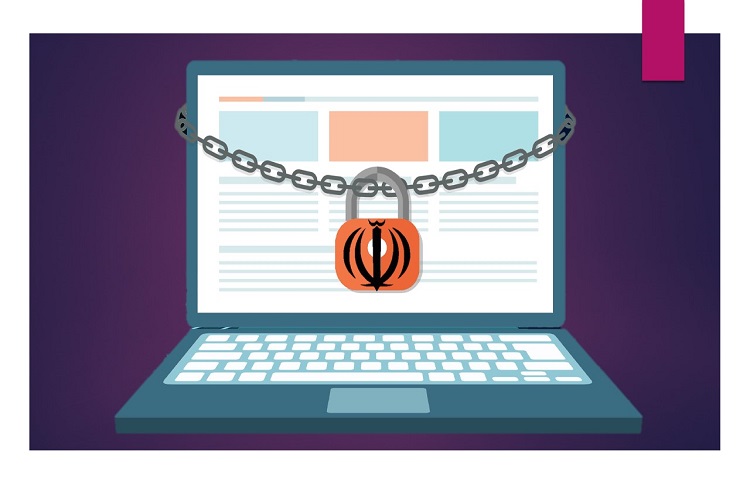
By Pooya Stone
Iranian authorities apparently began reconnecting much of the country’s internet on Friday, one week after the outbreak of anti-government protests that were sparked by the announcement of increases in the price of gas.
US Secretary of State Mike Pompeo quickly responded to the return of connectivity by asking Iranian activists to send photos and videos documenting the regime’s crackdown on those protests. On Tuesday, he announced that the US had already received 20,000 messages containing this kind of content.
Pompeo’s request and subsequent announcement were accompanied by promises that the US government would expose and sanction any human rights abuses. The White House has already imposed sanctions on a wide range of Iranian officials and entities as part of a “maximum pressure” strategy aimed at compelling Tehran to alter a series of behaviors. So it remains to be seen what other entities might still be targeted in connection with newly revealed human rights abuses.
However, one new target was announced on Friday as the Trump administration emphasized its condemnation of the nationwide restrictions that Tehran had imposed on the internet. Mohammad Javad Azari-Jahromi, the regime’s Minister of Information and Communications Technology, is now barred from commerce that involves the American financial system, and any assets he has in US-connected institutions are subject to a freeze.
Iran’s New #Internet #Crackdownhttps://t.co/eXst3gJtXT #Iranfreedom #freeiran #MEK #Iran @USAdarFarsi pic.twitter.com/AEWQZ4FuUD
— Iran Focus (@Iran_Focus) November 29, 2019
“We are sanctioning Iran’s Minister of Information and Communications Technology for restricting internet access, including to popular messaging applications that help tens of millions of Iranians stay connected to each other and the outside world,” US Treasury Secretary Steven Mnuchin explained. But it is unlikely that the supposed restoration of internet access will lead to the lifting of these sanctions, especially considering that some of the recent restrictions apparent remain in place, while others had become entrenched long before the latest popular uprising.
Shortly after sanctioning Azari-Jahromi, the US also urged Twitter and Facebook executives to ban Iranian government officials from their platforms. The message called attention to the fact that many such officials maintain an active presence on international social media, even though the same platforms are officially banned for ordinary Iranians. Bans of this kind have steadily expanded, often in response to public activism that relied on social media for its organization.
The instant messaging app Telegram grew extremely popular among Iranians in the run-up to nationwide protests at the end of 2017 and the beginning of 2018. It was also officially tolerated by regime authorities but was restricted while the uprising was in full swing. Nevertheless, Pompeo noted on Tuesday that most of the tips that reached the US from Iranian activists over the previous few days had been communicated via Telegram. This goes to show that much of the Iranian public possesses both the political will and technical know-how to circumvent bans on various websites and social media.
This represents a challenge that the Iranian regime has been struggling to contend with for many years. Naturally, that challenge has been confronted at various times through expanded enforcement, as in the form of sting operations that led to the mass arrest of persons accused of distributing banned material online or committing such crimes as “insulting the supreme leader.” But Tehran has also sought to impose more technical restrictions on access, as well, to permanently impede the public’s ability to access banned sites. The ultimate goal of these efforts is the creation of a fully insulated national internet, or “halalnet” – an idea that hardliners have been promoting at least since 2005.
Restoring Iran’s #Internet #Access Will Save Lives https://t.co/tFwKfN5emN via @iranfocus #Iranfreedom #freeiran #MEK #Iran @USAdarFarsi pic.twitter.com/w5cM8AlS9k
— Iran Focus (@Iran_Focus) November 21, 2019
Questions persist about the extent of Iran’s technical ability to impose restrictions, and about the long-term viability of the halalnet project. The transition would ostensibly be a further step in the direction of a national internet, in that it would effectively block the global internet in its entirety before configuring Iranian servers to allow specific exceptions.
Presently, virtual private networks are used extensively in Iranian cities in order to gain access to the majority of banned websites and social media networks, including Telegram and Twitter. The regime has long sought to bring these services under its control, and last week’s anti-government protests can be expected to provide additional incentives to pursue these plans.
The demonstrations also appear to have fueled the regime’s ongoing efforts to obstruct foreign media outlets from reaching the Iranian public or receiving information from it. This was apparent on Tuesday from reports detailing the latest legal measures and threats deployed against those outlets’ employees and contributors, as well as their families.
The Iranian judiciary’s website acknowledged that it had imposed “judicial and legal restrictions” on property held by persons affiliated with the UK-based Iran International. Additionally, Britain’s National Union of Journalists revealed threats levied against the families of staff for both Iran International and the BBC Persian Service. NUJ General Secretary Michelle Stanistreet condemned Iranian officials for the “cruel and inhumane” practice of “using outrageous tactics to intimidate and threaten journalists across a range of media outlets in the UK and internationally.”
But much like the overall restrictions on internet access, the latest attacks on foreign media are only part of a larger pattern.


